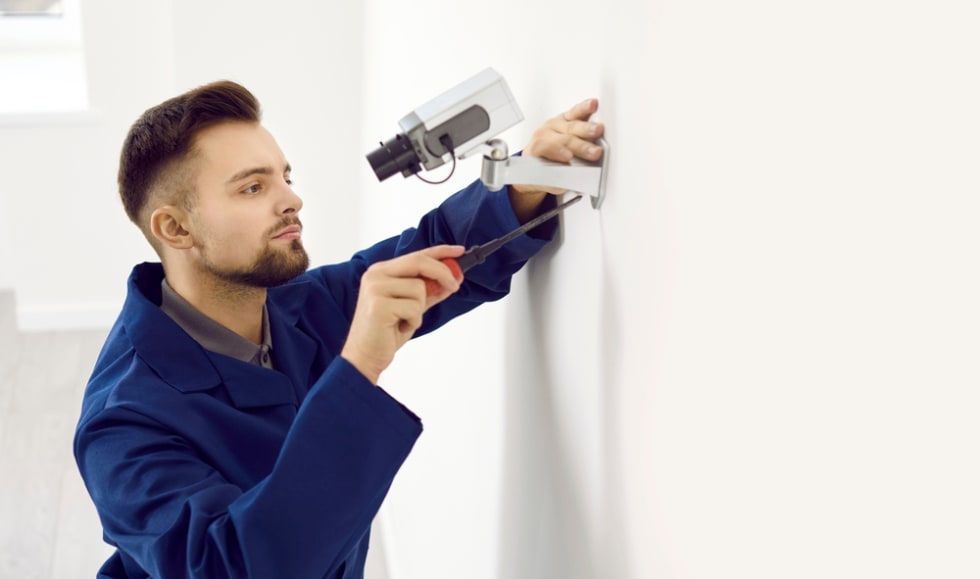What Is a Building Super + 9 Essential Responsibilities

A building superintendent is any person responsible for managing the daily operations of a residential or commercial building. They are typically hired by property management firms, condominium associations, or cooperative boards and collaborates closely with those groups to ensure the property is impeccably maintained and complies with all applicable codes and regulations.
This blog post will further explore just what building supers do and the 9 key building superintendent responsibilities they should own and manage. With our easy-to-follow guide, you’ll be on your way to making life easier for yourself and tenants alike!
9 Responsibilities of a Building Superintendent

Because the super of a building plays a crucial role in ensuring that it is a safe, comfortable, and functional place to live or work, it is a role that is not taken lightly. Here are some of the primary building superintendent duties.
1. Building Maintenance
One of the primary responsibilities of a building superintendent is maintenance.
This involves guaranteeing that the building's structures and systems operate effectively and efficiently. Regular inspections, repairs, and upkeep of electrical, plumbing, heating, and cooling systems are all part of the superintendent's job. In addition, they are responsible for maintaining the building's structural components, such as roofs, walls, and floors.
2. Repairs and Maintenance
Another important responsibility of a building superintendent is to oversee repairs and maintenance. They must promptly address maintenance requests from tenants or residents, prioritize and schedule repairs based on their urgency and impact on the building's operations, and guarantee that all repairs and maintenance tasks are executed to a high standard.
3. Security and Safety
Maintaining the building's security systems, such as alarms, cameras, and access control systems, is another responsibility of the building superintendent. They must also conduct regular safety inspections to identify potential hazards or security risks.
In the case of an emergency or security breach, the superintendent must be prepared to respond promptly and efficiently, collaborating with local authorities and residents to guarantee the safety and well-being of all involved.
4. Tenant Relations
Building superintendents must cultivate positive relationships with tenants. As the initial point of contact for residents with questions or concerns, they must be approachable, responsive, and professional.
In addition, building superintendents must possess strong conflict resolution skills and the ability to handle disputes between tenants or between tenants and management with sensitivity and discretion.
5. Budgeting and Financial Management
The building superintendent is accountable for developing and overseeing the building's budget, including allocating resources and funds to ensure cost-effective and efficient building operations. They must also negotiate contracts with vendors or service providers, ensuring all expenses are reasonable and within budget constraints.
6. Record-Keeping
Building superintendents are accountable for maintaining comprehensive records of all building activities, including financial transactions, tenant communications, maintenance and repairs, and other vital information. These records are essential for efficient building management and for generating precise and timely reports to building owners or management.
7. Communicating with the Property Owner
Reporting on the building's operations, financial performance, tenant concerns, and other significant matters is another crucial aspect of the building superintendent's responsibilities. They must communicate proactively, keep the property owner or management informed of any issues, and provide recommendations for enhancements or cost-saving measures.
8. Property Showings
Displaying the rental property to potential tenants is another critical responsibility of a building superintendent. They must possess knowledge of the property and be capable of addressing inquiries regarding the building's characteristics, amenities, and lease terms.
9. Staff Supervision
Staff supervision involves overseeing and managing the maintenance and janitorial staff. They must guarantee that staff members are adequately trained, adhering to established protocols and procedures, and completing their tasks to a high standard.
Furthermore, building superintendents may be responsible for scheduling staff shifts, managing time-off requests, providing feedback, and conducting performance evaluations.
Final Thoughts
A building superintendent's role is critical. After all, their duties include managing maintenance and repair tasks, responding to tenant complaints, enforcing building policies, and managing building staff. But, of course, nothing strikes perfect harmony in a property quite like an efficient building superintendent and great tenants.
If you’re ready to find the best tenants for your property, list with Apartment List!
Share this Article




